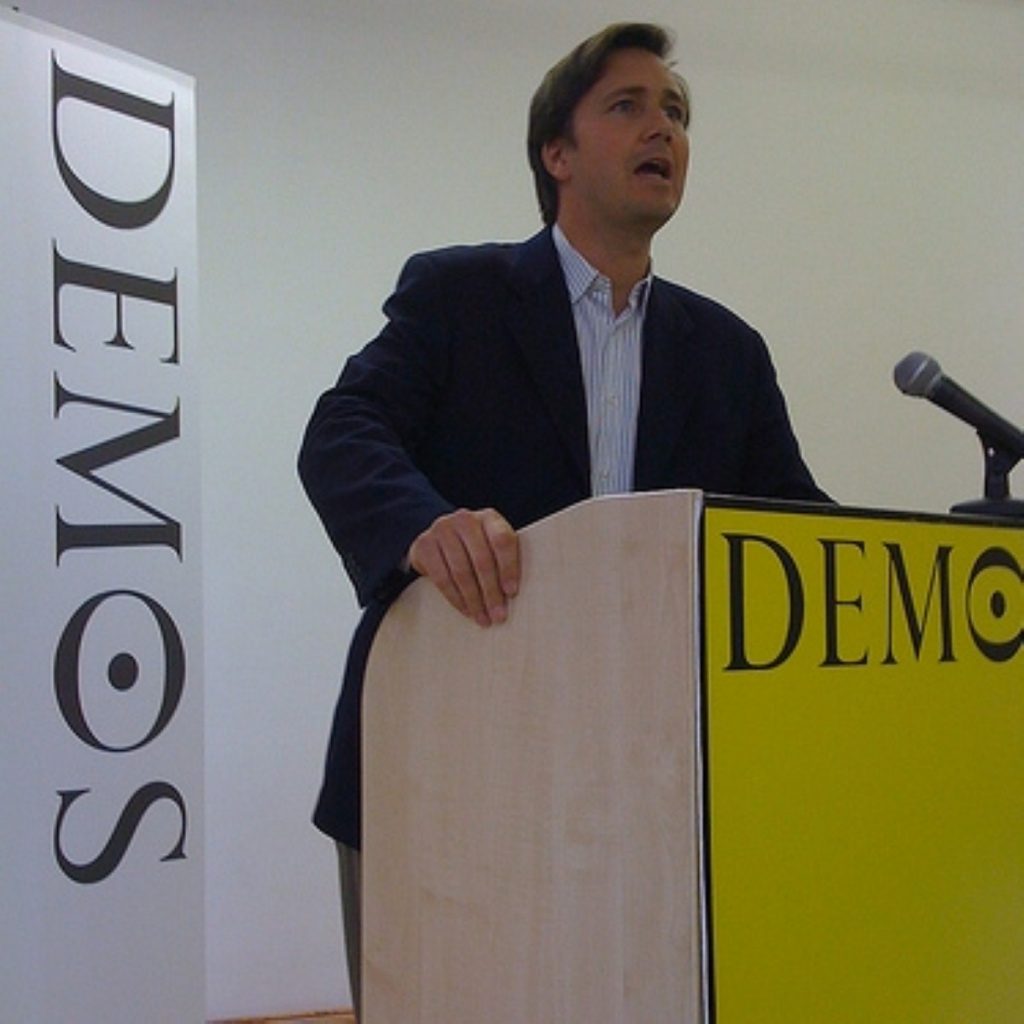Interview: Demos’ balancing act
All thinktanks have a tough balancing act to make between reacting to current events and achieving that longer view. Demos has its own answer to the problem.
By Alex Stevenson
On first glance the thinktank seems to have opted for an arms-length approach to the news agenda.
“The perspective has always been thinking ten years ahead rather than three years ahead,” Demos’ head of communications, Peter Harrington, says.


“It’s more strategic, less tactical – more about the direction of the car rather than the design of the engine.”
This approach is applicable across the policy spectrum. But, in a stroke of luck, it’s also very convenient for the biggest political debate of the coming decade. As the spending cuts debate begins to shape up as the defining issue of the coming general election, everyday politics has become inextricably linked with the longer-term perspective Demos prides itself on. So it’s no surprise the “austerity agenda” is being grasped with both hands.
Harrington sums up the dilemma: “How do we stop this enormous public debt steamrolling over the social justice agenda? That’s the progressive agenda.”
It’s a good one. Now is a fertile time for thinktanks, despite the recession. Demos has had to adapt its own work – its staff numbers peaked two years ago – but the political environment couldn’t be more suited to fresh ideas.
Demos has a knack of being in the right place at the right time. Set up in 1993 by Geoff Mulgan, who subsequently ended up on Tony Blair’s sofa in No 10, it quickly became associated with the New Labour movement. The idea of ‘cool Britannia’, which lit up the bright sunlit uplands of Blair’s early years, came from the Demos stable.
Under Tom Bentley, who stayed with the organisation until 2006, the thinktank coalesced into a big player on the British political stage. The process was a gradual one. Following Mulgan’s founding methodologies, Bentley built a “network of networks” which transcended the usual narrow Westminster channels. The organisation drifted into shape over the course of years, starting as a looser constellation of part-time thinkers and only slowly stabilising into a firmer organisation. Still, rather like a gas planet with a big gravitational pull, it remains as fluid as ever.
“It’s that idea that only by cross-fertilising ideas do you get good ones. That’s why we communicate the way we do,” Harrington explains.
“These ideas are in the DNA of the organisation. We’re trying to stay true to them. The way we work reflects the way we think politics should generate ideas. By doing it like that, the ideas that Demos generates will be better.”
Having been so closely tied to New Labour, the maturer Demos has gravitated away from any particular political party. When Harrington tells me that “we are political, not party political”, and that “good ideas have no pre-ordained political home”, it feels as if this could be coming from any thinktank in London.
What marks Demos out is the way it has dealt with the headache. Around the Demos planet two satellites are in orbit, on whose surfaces the two main parties test out their progressive credentials.
First is Open Left, the vehicle for former Cabinet minister James Purnell to agonise over the fate of his party. As the Tories steal the clothes of Labour and much of the Liberal Democrats’ left-wing agenda, this project provides the means for lefties to ponder the way forward. “It’s looking more about the long-term renewal of the idea – to get ideas back into the bloodstream.”
The Tory equivalent is Progressive Conservatism, which might be better named Progressive Conservatism? The project, launched in January, is designed to hold their policies up to the light and put forward proposals. “Let’s hold them to their promise a bit, and see how sincere their desire really is,” Harrington says.
He gets rather excited about the possibilities this offers. “David Willetts can come in and find himself faced with James Purnell. That exchange is really fantastic. It goes against all the tribalism in politics.”
As he explains, being non-party political doesn’t mean you have to be neutral on values as well. Demos is overtly progressive – and is keen to test both parties’ policies to that end.
“We’re all in one room. It’s not as if they take the work and refract it through one philosophy. That’s not Demos saying – let’s be party political. It’s us saying, let’s be a space.”
So, it turns out, this is an organisation which in policy terms may be taking the longer view, but has found a coherent way of getting into the thick of things as well. Every thinktank has to wrestle with the tensions of being relevant and topical, and keeping the longer-term perspective. Demos has found its own way round the problem. It works.

